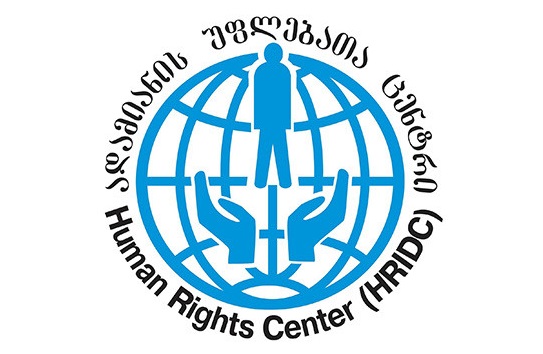Tbilisi Appellate Court will examine the case of the convicted person for hijacking a police car
March 10, 2020

Tomorrow, at 11:00 am, the Tbilisi Appellate Court will hear the criminal case against the convicted Kakha Tsavelidze. The lawyer of the HRC Shida Kartli office Aleksi Merebashvili defends legal interests of Kakha Tsavelidze.
On June 10, 2019, service car of the Ministry of Internal Affairs turned over as a result of car accident on Tbilisi-Senaki-Leselidze highway. Kakha Tsavelidze is convicted for hijacking the car, who was juvenile at that time.
The convicted person claims that in fact, police officer was driving the car. In order to cover the car accident, police officers created a version according to which the drunken underage person had stolen the service car from Giorgi Patiashvili, deputy head of the district inspectors’ unit of the Gori municipality division of the MIA. Later on, entire investigative process was dedicated to verify this version. The prosecutor repeats the testimony of the police officer and relies on it instead obtaining the evidence impartially.
Kakha Tsavelidze had conflict with the law. As he reports, he many times became subject of verbal and physical violence from the side of police officers. If police officers encountered him in the street during night hours, they used to restrict his freedom, put him in the police car and drove him around the town till morning to allegedly prevent him from committing any crime. On the night of accident too, Giorgi Patiashvili put him in the car for the same purpose, though according to the official reports he put Kakha Tsavelidze in the police car for the purpose of arrest. In the car, he compelled the underage boy to cooperate with him and give information about some crimes so that he could arrest concrete individuals. He intimidated the underage boy, verbally and physically assaulted him. On the highway, the police officer speeded up the car and continued verbal and physical assault of Tsavelidze. In that moment, the young man, in order to protect himself from the assault, waved his hand up and the police officer crashed the service car, which turned over. Tsavelidze does not remember anything because he lost conscious. When he recovered, two persons were helping him to creep out of the car. He could not see police officer Giorgi Patiashvili there. Tsavelidze doubts that the police officer escaped the scene of incident via bridge stair. He was very anxious and worried because of the car accident and urged for help. As nobody helped him, he walked down to the nearby settlement – Ortasheni village, where he stayed in the family of his relatives. Next day police arrested him.
There are no direct evidence in the case files, which could confirm that Kakha Tsavelidze was driving the car, or had hijacked the police car except the evidence of the police officer, who also participated in the incident. Moreover, Kakha Tsavelidze cannot drive a car. Neither dactyloscopy nor biological expertise confirmed that he had contact with the car wheel and gear. There are many irrelevances and controversies between the police officer’s testimony and other evidence in the case files.
HRC believes that Kakha Tsavelidze is innocent and police officers purposefully blame him in the crime to protect acting police officer from the responsibility.
It is also noteworthy that the investigation was conducted by the MIA, while senior officer of their ministry participates in the incident. Therefore the investigation could not be impartial.
Human Rights Center believes that Gori district court should not have accepted the irrelevant and controversial evidence obtained by the partial and biased investigative body and should have respect the standards established by the case law of the European Court of Human Rights. The court should have taken particular interest of the MIA into consideration and pass fair verdict.
HRC addressed the General Inspection of the MIA but the latter failed to detect any violation in the activities of Giorgi Patiashvili. The Office of the Prosecutor’s General interviewed Kakha Tsavelidze and no information is reported about the ongoing examination of the case.
Human Rights Center
News
December 13, 2023
Ethnic minorities outside the peace dialogue
November 6, 2023
‘Peace’ agenda of political parties
Popular
Articles
February 13, 2024



